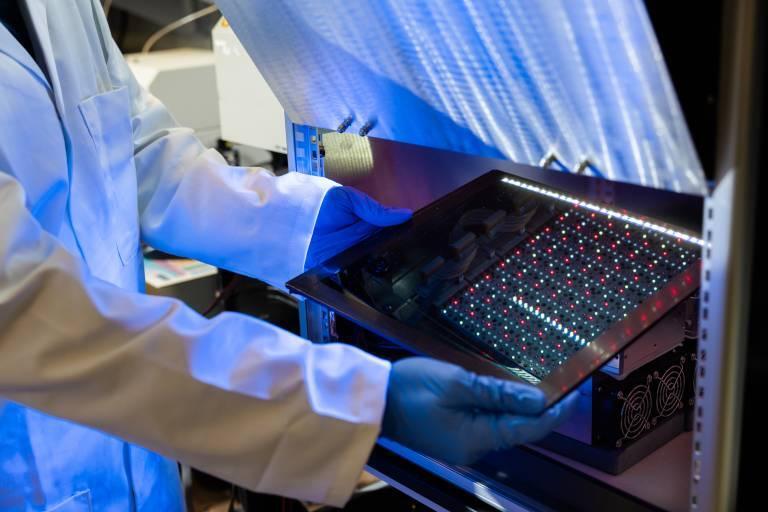
Indoor Solar Cells Developed, May Make Household Gadgets Battery-Free
In a breakthrough that could revolutionize the way we power our daily devices, scientists at University College London (UCL) have developed indoor light-powered perovskite solar cells that have the potential to eliminate the need for billions of disposable batteries. These innovative cells are capable of harnessing energy from indoor lighting, making it possible to sustainably power a wide range of household gadgets, from remote controls to keyboards and sensors.
The UCL team, led by Dr. Anna Fontcuberta i Morral, has achieved a remarkable efficiency rate of 37.6% under typical indoor lighting conditions. Moreover, the cells have demonstrated an impressive retention of 92% performance after 100 days, indicating their long-term viability. This groundbreaking technology has far-reaching implications for the environment, as it could significantly reduce electronic waste and the reliance on non-renewable energy sources.
The development of indoor solar cells is a significant departure from traditional solar panels, which are designed to capture energy from direct sunlight. The new perovskite solar cells, on the other hand, are optimized to work with the dimmer, more diffuse light found in indoor environments. This means they can be integrated into a wide range of devices, from smart home systems to wearable technology, without the need for bulky or expensive batteries.
The potential applications of these indoor solar cells are vast and varied. Imagine a world where your remote control never runs out of batteries, or your keyboard and mouse are always powered and ready to use. The technology could also be used to power a range of sensors and devices that are currently reliant on disposable batteries, such as smart home thermostats, door sensors, and motion detectors.
The UCL team’s breakthrough is the result of years of research and development, during which they have overcome several challenges to create a high-performance, low-cost perovskite solar cell. The cells are made from a combination of organic and inorganic materials, which allow them to be flexible and durable, making them suitable for integration into a wide range of devices.
“The development of indoor solar cells has the potential to transform the way we power our daily devices,” said Dr. Anna Fontcuberta i Morral, lead researcher on the project. “We believe that our technology could make a significant impact on reducing electronic waste and minimizing our reliance on non-renewable energy sources. We’re excited to see how our innovation can be applied in different industries and applications.”
The UCL team’s research has been published in the journal Nature, and their findings have been met with widespread interest and excitement within the scientific community. As the technology continues to evolve, it’s likely that we’ll see a range of new applications and innovations emerge, from wearable devices to smart home systems and beyond.
In conclusion, the development of indoor solar cells by the UCL team is a significant breakthrough that could have a profound impact on the way we power our daily devices. With their high efficiency, long-term performance, and potential for integration into a wide range of devices, these innovative cells are poised to revolutionize the electronics industry and contribute to a more sustainable future.
Source: https://www.ucl.ac.uk/news/2025/aug/new-solar-cells-could-power-devices-indoor-light






